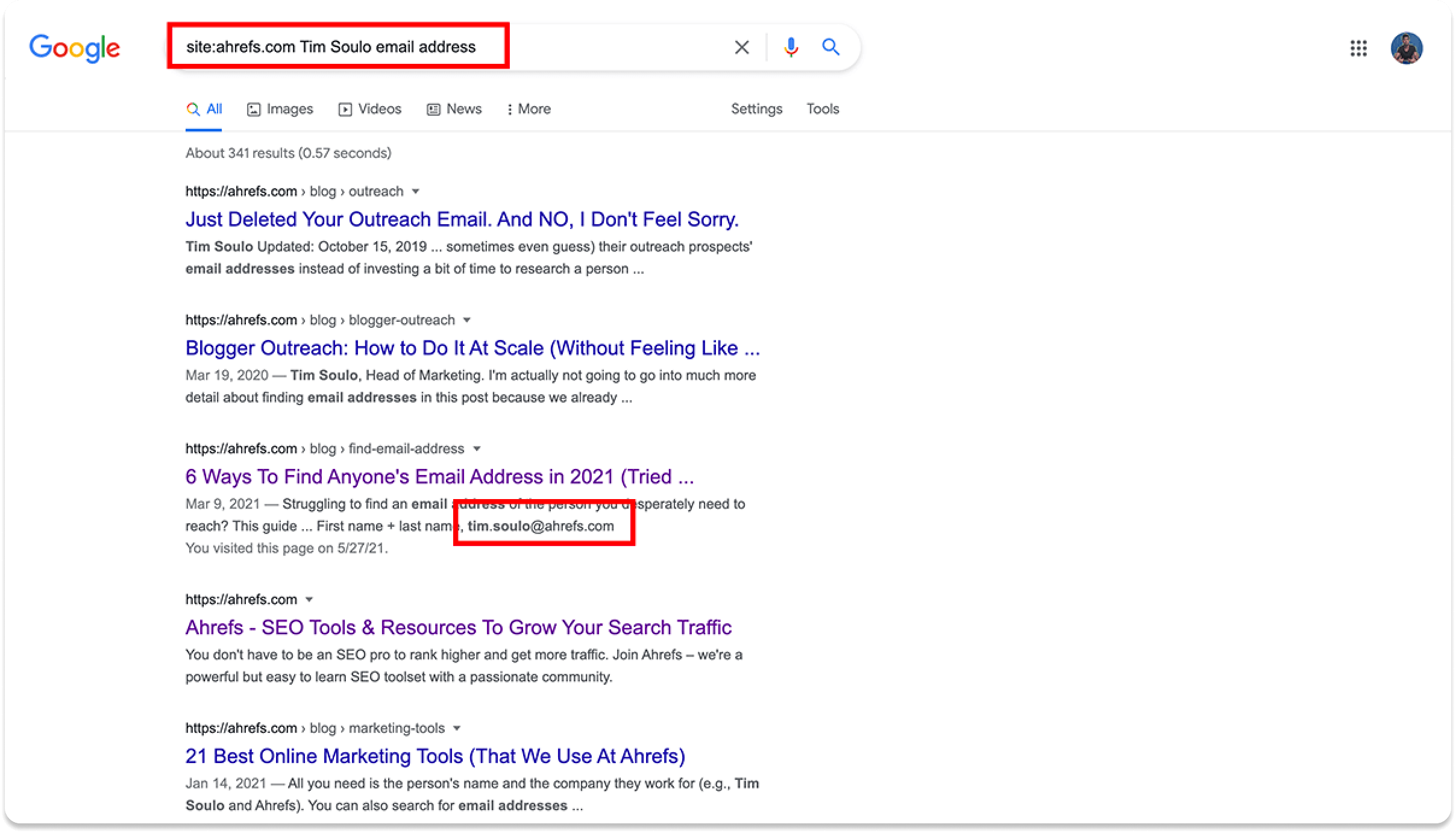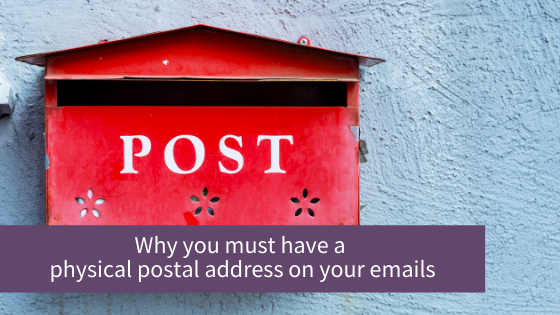No, you don’t need a physical address for email marketing, but it is recommended. Having an address can increase trust and compliance with regulations.
Email marketing is a powerful tool for reaching your audience. But, you might wonder if you need a physical address to get started. Many people have this question, especially when they want to maintain privacy. An address can provide credibility and meet legal requirements like the CAN-SPAM Act.
While it’s not always mandatory, it helps in building trust with your subscribers. Let’s explore why an address can be important and how you can handle it effectively. Whether you’re new to email marketing or looking to refine your strategy, understanding this aspect can make a big difference.

Credit: www.lemlist.com
Importance Of An Address In Email Marketing
Email marketing is a powerful tool for businesses. It helps to reach a wide audience efficiently. But, having a physical address is crucial for effective email marketing. This address adds legitimacy and trust to your emails. Let’s explore why an address is important.
Legal Requirements
Many countries have laws for email marketing. These laws often require a physical address. The CAN-SPAM Act in the U.S. is one example. It mandates businesses to include a valid postal address. This law aims to reduce spam and protect consumers. Ignoring these laws can result in penalties. So, including an address keeps you compliant and avoids legal issues.
Trust And Credibility
An address boosts trust with your audience. It shows that your business is real and reliable. People feel safer when they know where to find you. This trust encourages them to open your emails. It can also lead to higher engagement rates. A physical address reassures your subscribers. They see you as a credible business. This credibility is essential for building long-term relationships.
Regulations And Compliance
Email marketing is a powerful tool, but it comes with certain rules. Ensuring compliance with regulations is crucial to avoid penalties and maintain trust. This section covers key regulations you must follow for email marketing, including the CAN-SPAM Act and GDPR Guidelines.
Can-spam Act
The CAN-SPAM Act sets rules for commercial email. It establishes requirements for commercial messages and gives recipients the right to stop receiving emails.
Key requirements include:
- Accurate Header Information: The “From,” “To,” and routing information must be accurate.
- Subject Lines: They must not mislead the recipient.
- Identify the Message as an Ad: Clearly state that your message is an advertisement.
- Provide Your Location: Include a valid physical postal address.
- Opt-Out Mechanism: Include a clear and easy way to opt-out of receiving future emails.
Gdpr Guidelines
The General Data Protection Regulation (GDPR) applies to email marketing in the EU. It protects personal data and privacy.
Key GDPR requirements include:
- Consent: Obtain clear consent before sending emails.
- Data Protection: Ensure personal data is protected and securely stored.
- Right to Access: Recipients can request access to their data.
- Right to be Forgotten: Allow recipients to request their data be deleted.
- Transparency: Clearly explain how you will use their data.
Both the CAN-SPAM Act and GDPR have strict rules. Following these guidelines helps you stay compliant and build trust with your audience.
Benefits Of Including An Address
Including an address in your email marketing campaign can provide multiple advantages. It not only helps in building trust but also ensures compliance with legal requirements. This practice can make your emails more effective and trustworthy. Let’s delve into the specific benefits.
Enhanced Professionalism
Having an address in your emails boosts your brand’s credibility. It shows that your business is real and reliable. Recipients feel more confident in engaging with you.
An address also gives a sense of security. It reassures your audience that you are not a scammer. This small detail can significantly impact your open and conversion rates.
Improved Deliverability
Including an address can improve the deliverability of your emails. Email service providers consider this as a trust factor. It reduces the chances of your emails going to the spam folder.
An address also helps in compliance with anti-spam laws. This compliance is crucial to maintain a good sender reputation. Better deliverability means more people will see your emails.
Potential Risks Without An Address
Having a valid address is crucial in email marketing. It helps build trust and ensures compliance. Without an address, you risk facing significant challenges. These challenges can harm your reputation and business.
Increased Spam Complaints
Emails without a valid address often get flagged as spam. Recipients may not trust emails without an address. They might report them as spam. This can increase your spam complaints. High spam complaints can damage your sender reputation. Your emails might end up in the spam folder.
Consider the following potential issues:
- Lower open rates
- Higher bounce rates
- Loss of subscribers
All these issues can negatively impact your email marketing efforts. Ensure you include a valid address to avoid these problems.
Legal Consequences
Not having an address in your emails can lead to legal troubles. Many countries have strict email marketing laws. They require a valid physical address in every email.
| Country | Law |
|---|---|
| USA | CAN-SPAM Act |
| Canada | CASL |
| EU | GDPR |
Violating these laws can result in heavy fines. You might also face legal action. Including an address helps you stay compliant.
Remember, compliance is not optional. It’s a must. Protect your business by following the rules. Always include a valid address in your emails.
Alternatives To Physical Addresses
Many businesses wonder if they need a physical address for email marketing. While it is a common requirement, there are alternatives. These options help maintain privacy and comply with regulations. Let’s explore some practical solutions.
Virtual Offices
Virtual offices provide a professional address without a physical space. They offer mail handling services, which can be very useful. You get a real address that you can use for email marketing.
This option helps keep your home address private. It also gives your business a more professional image. Virtual offices are available in many locations and are cost-effective.
Po Box Options
Another alternative is using a PO Box. A PO Box is a secure and private way to receive mail. You can use the PO Box address for your email marketing campaigns.
It is easy to set up and affordable. Many post offices offer this service. A PO Box ensures your personal address stays confidential.
Both virtual offices and PO Boxes provide practical solutions. They help you comply with email marketing laws. Choose the option that best suits your business needs.

Credit: www.chase.com
How To Choose The Right Address
Choosing the right address for your email marketing is crucial. It affects your brand image and delivery rates. Let’s explore the key factors to consider.
Business Needs
Your business type and size impact your address choice. A home-based business may use a home address or PO Box. A larger company might use a physical office address. Consider your customer expectations. A professional address increases trust. It reassures your audience.
Cost Considerations
Budget is a key factor in selecting an address. A physical office address can be costly. You need to think about rent, utilities, and maintenance. A PO Box is cheaper. It offers privacy but may seem less professional. Virtual office addresses offer a balance. They provide a professional look at a lower cost.
| Address Type | Cost | Professionalism |
|---|---|---|
| Home Address | Low | Low |
| PO Box | Low | Medium |
| Physical Office | High | High |
| Virtual Office | Medium | High |
Evaluate your budget. Choose an address that fits your needs. Ensure it aligns with your brand image and customer expectations.
Best Practices For Displaying Your Address
Email marketing is a powerful tool. But it comes with certain requirements. One of them is displaying your physical address. This is not only a best practice but also a legal obligation under laws like CAN-SPAM. Knowing the best practices for displaying your address can improve your email’s credibility. It also ensures compliance with regulations.
Placement In Emails
Where you place your address in the email matters. It should be easily visible yet not distracting. A common practice is to include it in the footer section. This keeps the main content uncluttered. But the address is still accessible to recipients. Here’s a simple example:
You can also place it in the signature section. This is especially useful for personalized emails. It adds a personal touch while staying compliant.
Formatting Tips
Formatting your address correctly ensures it is readable and professional. Use a standard format that includes all necessary details. Here are some tips:
- Line breaks: Separate each part of the address with line breaks.
- Font size: Use a readable font size, typically 10-12 points.
- Bold: Bold the company name for emphasis.
- Alignment: Left-align the text for better readability.
Here’s an example of well-formatted address:
Following these tips can make your emails look more professional. It also helps in meeting the legal requirements for email marketing.
Real-world Examples
Email marketing can be very effective if you have an address. But what happens if you don’t? Let’s explore real-world examples to understand this better.
Successful Campaigns
Many brands have run successful email campaigns without a physical address. They focus on content. They build trust through valuable information. For example, an online store shares product tips and special offers. They ensure emails are relevant and engaging. This keeps the audience interested and loyal.
Another example is a blog that sends regular updates. They share new posts and relevant news. Their focus is on building a strong connection with readers. This approach keeps the audience engaged and returning for more.
Common Mistakes
Not having an address can lead to issues. Some emails might get marked as spam. This happens if the sender seems untrustworthy. Using a physical address can build trust. It shows the sender is genuine and reliable.
A common mistake is ignoring legal requirements. Many places require a physical address in marketing emails. Not following these rules can lead to fines. It can also damage your reputation. Always check local laws to ensure compliance.

Credit: www.leadwithprimitive.com
Frequently Asked Questions
Is A Physical Address Required For Email Marketing?
Yes, a physical address is required for email marketing. This is necessary to comply with anti-spam laws, like the CAN-SPAM Act.
Why Do You Need An Address For Email Marketing?
An address is needed for transparency and legal compliance. It helps build trust with recipients and prevents spam.
Can I Use A P.o. Box For Email Marketing?
Yes, you can use a P. O. Box. It is a valid option for meeting the physical address requirement in email marketing.
What Happens If I Don’t Include An Address?
Failing to include an address can lead to legal consequences. It may also result in your emails being marked as spam.
Conclusion
Having an address in email marketing is crucial. It builds trust. It complies with laws. It shows professionalism. Without it, you risk credibility. Your emails might land in spam. Always include an address. It reassures your audience. It keeps your marketing efforts effective.
Simple steps lead to better results. So, don’t overlook this detail. Your email success depends on it.



Leave a Reply